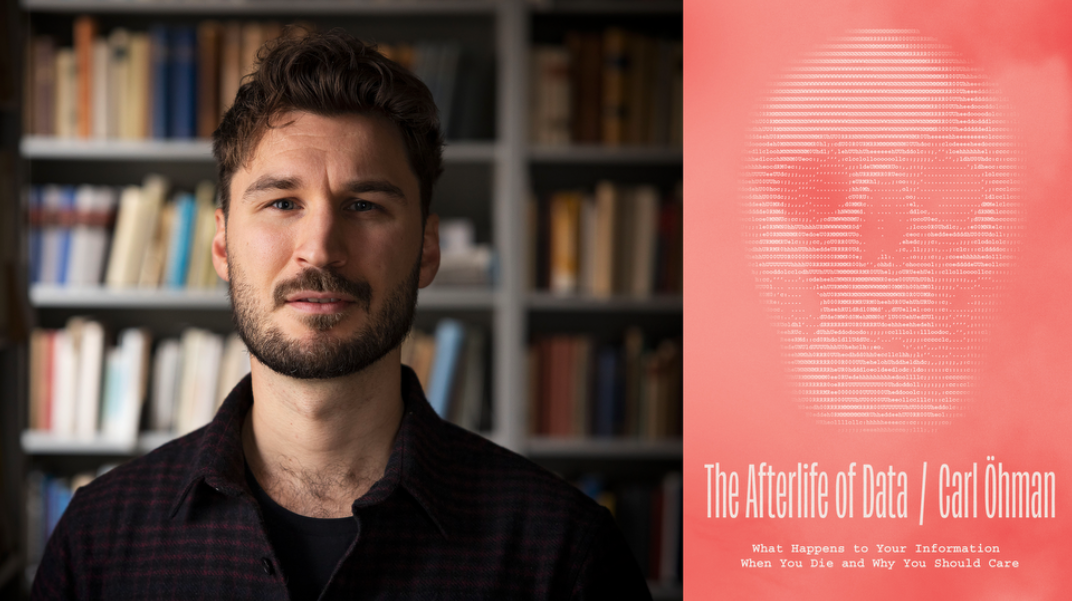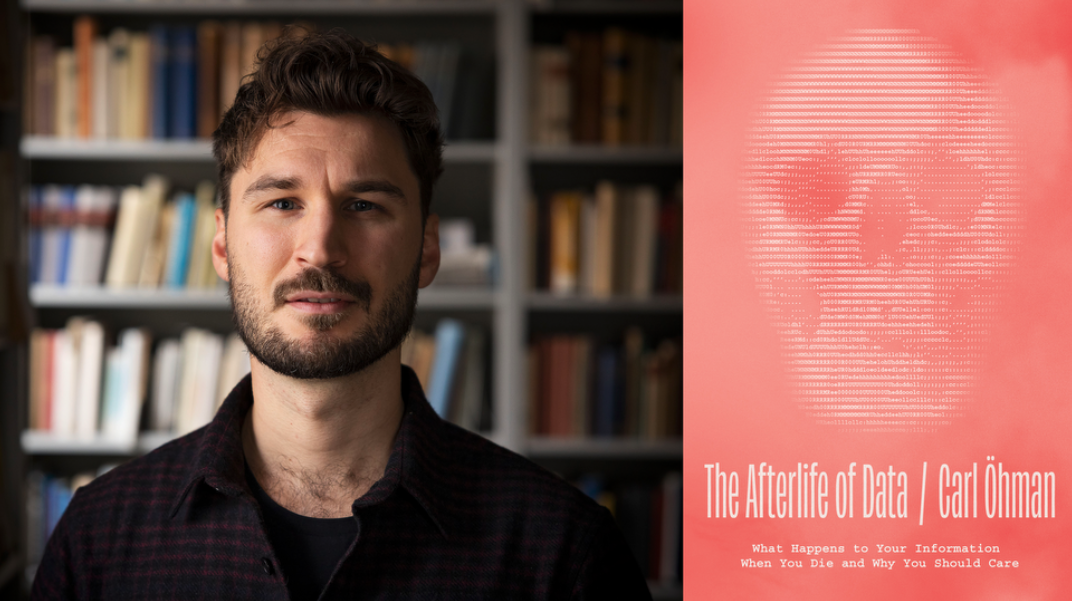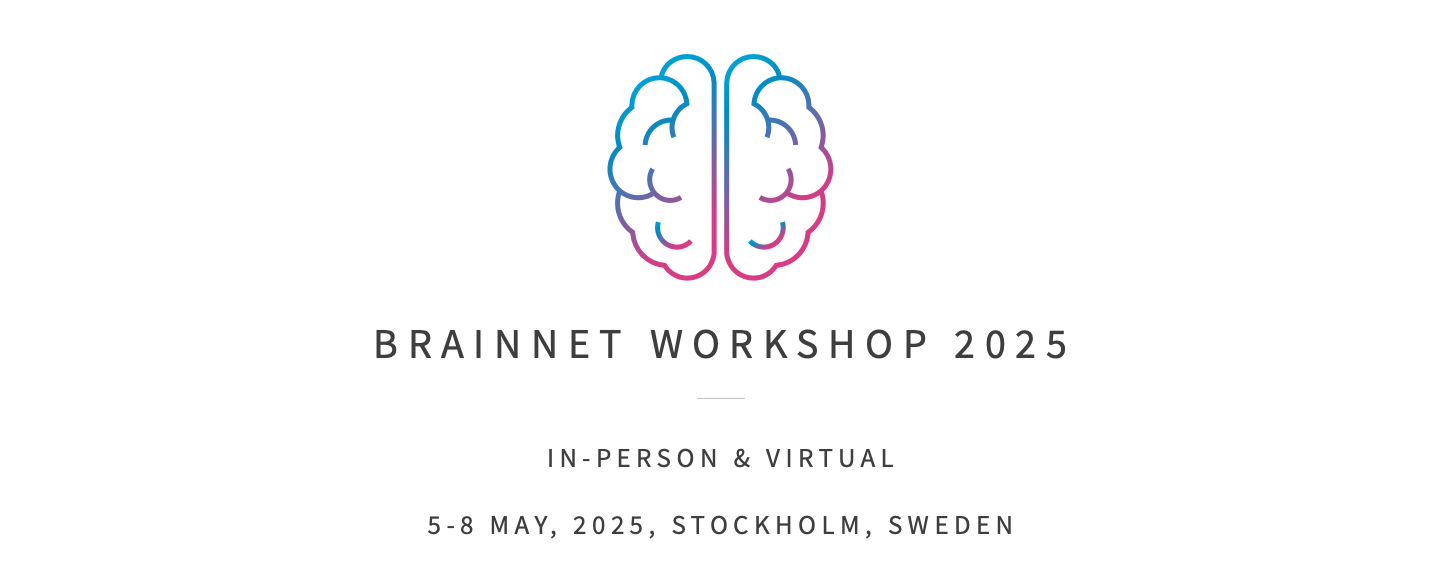Date and time: 18 September 2024, 13:00 – 15:00
Title: Digital Futures for Education: Afterlife of Data
Speaker: Carl Öhman, Uppsala University
Where: Digital Futures hub, Osquars Backe 5, floor 2 at KTH main campus
Directions: https://www.digitalfutures.kth.se/contact/how-to-get-here/
A maximum of 50 participants are onsite at the Digital Futures hub. First come, first served.
For participation, please register here: https://www.kth.se/form/665f08452a0ce3e6f73d14bd
Refreshments will be offered.
Questions? Please contact Teresa Cerratto Pargman, Associate Director Outreach, Digital Futures: tessy@dsv.su.se.
Carl Öhman, assistant professor of political science at Uppsala University, presents his book “The Afterlife of Data: What Happens to Your Information When You Die and Why You Should Care”. This short, thought-provoking book is about what happens to our online identities after death.

According to Science, “Öhman’s work holds the potential to influence not only current tech and policy decision-makers but also the next generation of software developers, social media executives, and policy-makers—the very generation that will increasingly live among the digital dead.”
Nowadays, so much of our lives are online—but what about our afterlives? Thanks to the digital trails we leave behind, our identities can be reconstructed after our death. In fact, AI technology is already enabling us to “interact” with the departed. Sooner than we think, the dead will outnumber the living on Facebook. In this thought-provoking book, Carl Öhman explores the increasingly urgent question of what we should do with all this data and whether our digital afterlives are really our own—and if not, who should have the right to decide what happens to our data.
The stakes could hardly be higher. In the next thirty years alone, about two billion people will die. Those who remain will inherit the digital remains of an entire generation of humanity—the first digital citizens. Whoever controls these archives will also effectively control future access to our collective digital past, and this power will have vast political consequences. The fate of our digital remains should concern everyone—past, present, and future. Rising to these challenges, Öhman explains, will require a collective reshaping of our economic and technical systems to reflect more than just the monetary value of digital remains.
As we stand before a period of deep civilizational change, The Afterlife of Data will be an essential guide to understanding why and how we as a human race must gain control of our collective digital past—before it is too late.
Welcome to a new series of conversations about books where we invite the book authors to present and talk about the intellectual work behind the book, their motivation, sources of inspiration, and expectations. Each semester, we choose one or two provocative books, and they provide us with ideas, concepts or facts that can help us reflect and debate the ongoing digital transformation of the society of which we are part and parcel.
Unlike other formats, books are unique as they invite us to slow down, engage deeply with stories and facts, and imagine that things can be otherwise. They are a golden opportunity for self-reflection, communication, and development.
As Ursula K. Le Guin and Susan Wood (1979) couldn’t have written it better: “We read books to find out who we are. What other people, real or imaginary, do and think and feel- or have done, thought and felt or might do, think and feel – is an essential guide to our understanding of what we ourselves are and may become”. p.31. Ursula K. Le Guin, Susan Wood (1979). “The Language of the Night: Essays on Fantasy and Science Fiction”. Ultramarine Publishing.
Through Digital Futures for Education, we aim to:
- Stimulate an interdisciplinary dialogue to identify social demands and needs locally and globally.
- Bring about a well-founded debate on the possibilities of digitalization and data-driven society.
- Cultivate critical and generative discussions on research educational programs and projects at KTH, Stockholm University, and RISE.
- Align research goals with agendas on everyday sociotechnical practices.
- Promote more inclusive conversations on digital transformation.
We invite you to participate in the digital transformation conversation by suggesting topics and potential speakers to Teresa Cerratto Pargman, Associate Director Outreach, Digital Futures. Please send your suggestion to tessy@dsv.su.se. Write “Digital Futures Outreach” in the subject of your email.
Digital Futures for Education consists of conversations and events that bring together key actors from academia, civil society, and the private and public sectors. Its mission is to provide a colloquial space for discussion and reflection on the digital transformation in education and the role of universities in today’s complex societies. The goal is also to build a community with key national and international educational actors.





